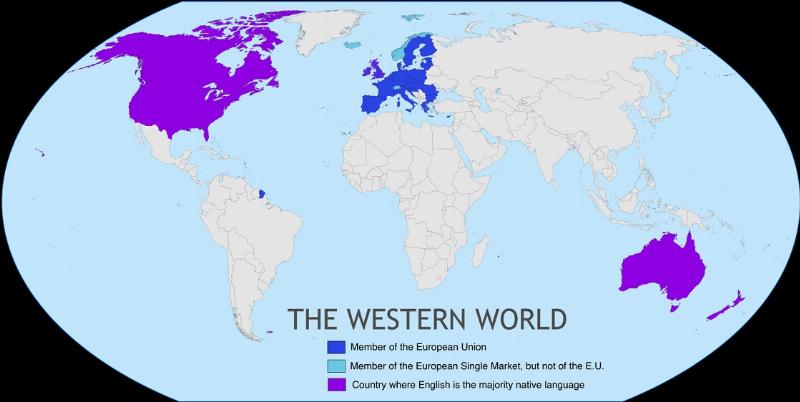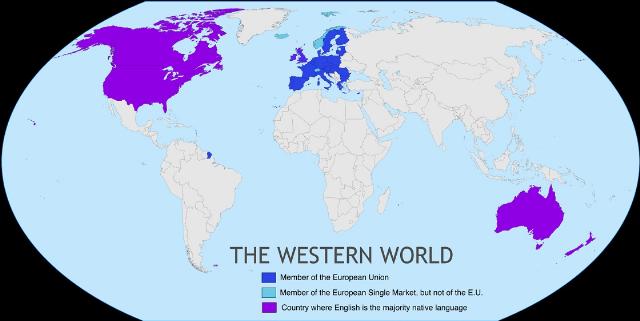


The West has to get its house in order. We have to define ourselves, establish who we are and what we stand for so that we can be effective in plotting a path forward. This is a need that has affected every American presidency and their subsequent wars and trade deals since the end of the Cold War and it continues to impact current events.
The first several months of this second Trump presidency have been interlaced with high-profile, high-stakes diplomatic efforts. The realignment of economic dependencies and attempts to end wars before they spread are puzzles with long-term implications. The dramatic public encounters like the one that took place in the Oval Office between Zelenskyy and Trump alongside grand moments like the February summit between Marco Rubio and Sergey Lavrov consume the public attention span. Then the escalations of the last week happen. Ukraine carries out a large-scale surprise attack and, from the outside view of someone who is not in the room where talks are taking place, it appears diplomacy has broken down and the threat of regional escalation is once again heightened.
This difficult question -- what ideals can the West rally around? -- crippled the presidencies of Bill Clinton, George W. Bush, Barack Obama, and Joe Biden.
Clinton strengthened economic ties with a totalitarian China in hopes that trade relations could spur reform without repeating the confrontation of the Cold War. George W. Bush committed the United States to what became a twenty-year war in Afghanistan in hopes that the people of that country would rally behind a representative form of government and abandon the exportation of terror. Obama pursued a path of deferential treatment to countries like Iran in hopes that stability could be achieved through addressing a perception of the West as a colonial power. Finally the Biden administration, with Jake Sullivan as the point man, attempted to ignore all these developments and rally the West in support of Ukraine by appealing to the old Cold War framework of free countries united against Russia.
It all failed. For twenty years the United States military won every engagement in Afghanistan, but the Taliban always had new recruits ready to step forward and provide bodies for the next engagement. China has rapidly grown more powerful since Clinton increased trade relations, and rather than reforming, they have used that to prop up authoritarian governments and solidify their own. Iran took advantage of Obama's overtures to increase their investments in Hezb’allah, Hamas, and the Houthis while fomenting sectarian divisions in Iraq. So when Biden attempted to rally the West behind Ukraine, he found that public support had been gutted.
The United States remains the apex power in the world but the Taliban’s undiminished recruiting power over the course of a twenty-year war demonstrated the limits of a military without a complimentary ideological force. People no longer have faith in our ability to win. Then watching allies like Canada crack down on protestors during the COVID lockdowns, even going so far as to freeze their bank accounts, people are left wondering if the West is really even the avatar of freedom after all.
So, if diplomatic efforts to end the war between Russia and Ukraine have failed (and no one knows what is going on behind closed doors) and we find ourselves in a position where we have to rally the West against a shared threat, what do we rally around? We need a solid identity. We need to address violations of individual freedoms within our allied countries and we need an origin story that explains what we are fighting for. Are we the relic of a colonial past or a bold new experiment in representative government?
To achieve this, it is time to begin sending delegations not just to negotiate trade agreements or arms deals, but to discuss curriculum, free speech laws, and the shared identity of republican governments. The 1776 Project cannot end at our own borders. We have to revisit the shared histories of England's Magna Carta, the Dutch Great Privilege, the revolutions of 1848, and a myriad of local histories lost in the shuffle. In preparation for a possible expansion of conflict not just in Ukraine but in Taiwan and portions of the Middle East, we need an ideological summit to address areas in which we and our allies have fallen short on personal liberties, and to refurbish our origin stories, identity and purpose. The coming crises require it.

Image: Azerty82
